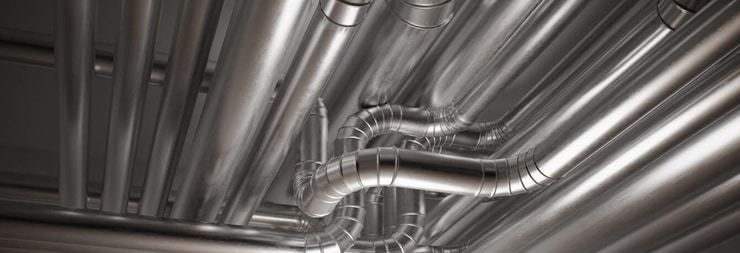Ensuring that your air conditioner lasts as long as possible requires regular maintenance — changing the air filter every 30 to 90 days, flushing the drain line, and possibly conducting a home energy audit. But, what about your ductwork? In addition to keeping them clean, is there anything else you need to do to keep them in top shape? While ductwork insulation is rarely at the top of people’s to-do list, it comes with several benefits to your home — and your pocket.
5 Benefits of Ductwork Insulation
There are several benefits to insulating the ductwork in your home or business. These include:
1. A more comfortable home
When air ducts are insulated, they retain the temperature of the air they’re transporting to each room of your home. This ensures more consistent temperatures at the setting you selected on the thermostat.
2. It lowers the risk of mold growth
Insulated air ducts are protected from the condensation that’s likely to happen in humid environments such as Florida. This is because they provide a reliable cover around the ductwork, making air leaks less likely.
3. Better air quality
Since you have a lower risk of mold growth and an accumulation of dust that usually come with leaks, the air that comes through the AC’s return vents will be cleaner — helping you breathe easier. Clean air also helps with reducing allergies.
4. Energy efficiency
Air conditioners work by removing the humidity of the air inside your house, cooling it, then distributing it through every room. If your home has an attic or crawl space, insulated air ducts that run through them won’t cause the air they’re transporting to lose heat or coolness.
5. Lower energy bills
Since insulated ductwork prevents cool air from losing its temperature, your home will reach what’s set on the thermostat sooner and cycle off in a shorter timeframe. As a result, you’re conserving energy — which translates to lower energy bills.
Types of Ductwork Insulation
There are several types of ductwork insulation, and each of them has varying R-values. Which one works best for your home depends on the type of HVAC system in your home, geographical location, and where you’re installing the insulation. As for R-values, the higher the value, the better the insulation. But, if you already have some insulation and you simply want to upgrade, you can install additional layers to increase efficiency.
When choosing which materials are best for your home, you should consider all relevant factors — such as whether you are installing it in a home, healthcare facility, or restaurant, whether you need noise control, and how often they need to be cleaned. The insulation itself can be made out of PVC, metal, mesh, and mastics. The best person to determine which one is best for your property is a certified HVAC technician.
AC Service in Brevard County
At Colman Air, we understand that sometimes, AC issues happen during the most inconvenient times. This is why we have a 24/7 AC emergency line. Call us if you need assistance ASAP, if you’d like to learn more about ductwork insulation, or to schedule routine HVAC maintenance.
24-HR Emergency Service: (321) 269-4565








